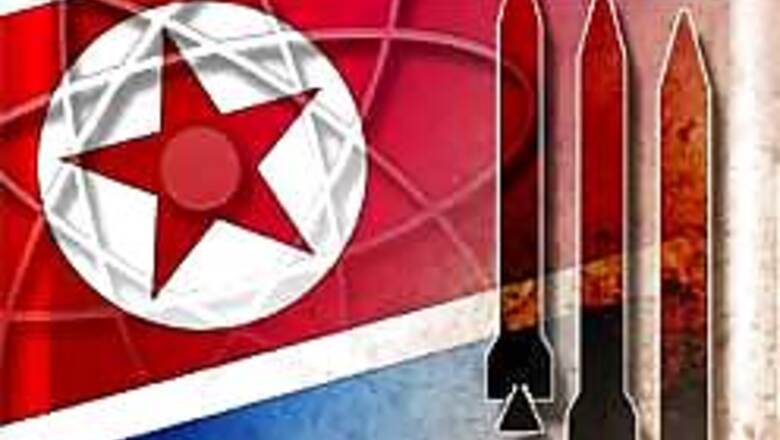
views
Beijing (China): North Korea agreed on Tuesday to rejoin six-nation nuclear disarmament talks in a surprise diplomatic breakthrough three weeks after the Communist regime conducted its first known atomic test, the Chinese government said.
Chinese, US and North Korean envoys to the negotiations held a day of unpublicised talks in Beijing during which North Korea agreed to return to the larger six-nation talks on its nuclear programs, the Chinese Foreign Ministry said.
"The three parties agreed to resume the six-party talks at the earliest convenient time," the Chinese statement said.
The agreement is one of the first signs of easing tensions since North Korea conducted the underground detonation on October 9, defying warnings from both the US and Japan, and its staunchest ally, China.
If the six-party talks resume, it would mark a diplomatic victory for Beijing, which in the wake of the test had argued against punishing North Korea too harshly, in order to leave open a path for diplomacy.
"We hope it's true," White House press secretary Tony Snow told NBC's Today show. "It would be very good news."
South Korea welcomed the North Korean agreement.
"The government hopes that the six-party talks will resume at an early date as agreed and that an agreement will be reached on how to implement" a prior accord under which Pyongyang pledged to abandon its nuclear program, South Korean Foreign Ministry spokesman Choo Kyu-ho said.
Seoul also has been trying to strike a delicate balance in punishing the North for its nuclear test; seeking to avoid aggravating its volatile neighbor while imposing sanctions according to an unanimous UN Security Council resolution.
The UN resolution calls for a ban on the sale of major arms to Pyongyang and inspection of cargo entering and leaving the country. It also calls for the freezing of assets of businesses supplying North Korea's nuclear and ballistic weapons programs, as well as restrictions on sales of luxury goods and travel bans on North Korean officials.
The six-nation arms talks were last held in November 2005, where no progress was made on implementing the September 2005 agreement where the North pledged to abandon its nuclear program in exchange for security guarantees and aid.
PAGE_BREAK
Just after that agreement, the North had demanded a nuclear reactor for power – a request that was quickly rejected by the other sides at the talks.
However, the North then argued that it wouldn't return to the negotiations until the US desisted from a campaign to sever it from the international financial system for Pyongyang's alleged complicity in counterfeiting and money laundering to sell weapons of mass destruction.
The North viewed those measures as proof of Washington's "hostile" policy against it and thinly veiled desire for regime change.
The US refused and said the issue was unrelated. To try and press its case, the North launched a series of missile in July – including a long-range model believed capable of reaching parts of the US.
A UN committee has been determining how to implement the sanctions over the atomic test, measures banning the North's weapons trade.
Washington has been seeking to gather support for the sanctions, and getting the North's top two trading partners – China and South Korea – to pressure the regime.
North Korea is believed to have enough radioactive material to make about a half-dozen bombs, but estimates vary due to limited intelligence about its nuclear program.
The apparent North Korean agreement followed a day of typically bellicose rhetoric from Pyongyang.
North Korea claimed that the US, "scared" by the North's nuclear test, conducted some 200 spy flights over the communist country during October.
"The aerial espionage underscores the need for the army and the people of the (North Korea) to bolster the war deterrent for self-defense in every way to foil the US imperialists' moves for a war of aggression," the North's official Korean Central News Agency said.
North Korea also warned South Korea on Tuesday against participating in a US-led international drive to stop and search ships carrying weapons of mass destruction, saying involvement would bring about unspecified "catastrophic consequences."


















Comments
0 comment